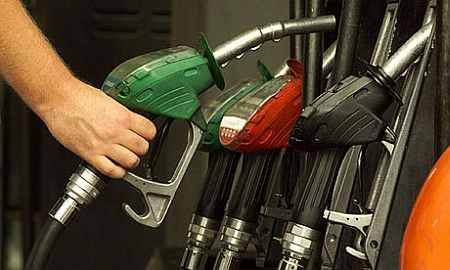 Govt unlikely to cut excise duties to compensate for higher global prices, say analysts.
Govt unlikely to cut excise duties to compensate for higher global prices, say analysts.
Diesel and petrol prices are about 20 per cent more than what they were a year before at this time and seem unlikely to reduce.
Global crude oil prices are inching upwards after output cuts by the Organisation of the Petroleum Exporting Countries cartel. And, the government is not likely to cut the excise duty.
Diesel is now Rs 57.82 a litre in Delhi, 25 per cent higher than in December 2015. Petrol is Rs 70.6 a litre, about 18 per cent more from then.
Opec decided on November 30 to implement a new combined production target of 32.5 million barrels a day, lower by 1.2 mn bbl/day from the earlier target.
"How fast the market rebalances will depend on the discipline to enforce and maintain the cuts, across a disparate group of oil producers, especially with crisis-ravaged members Libya and Nigeria exempted but with the potential to see large additions in output," S&P Global Platts, the energy watchdog body, said in its outlook report for this year.
More, a return by US shale oil producers could keep a lid on prices.
Those in the sector say the Opec cut was factored into global prices. "The cut will show in supply now but the market had earlier discounted some of the impact," said D K Sarraf, chairman of Oil and Natural Gas Corporation (ONGC). He expects global crude to stay at $60-65 a barrel.
Over the past two years when prices were low, he said, the government had taken some encouraging steps such as decontrol of diesel pricing, direct benefits transfer (of the subsidy) in cooking gas and curtailment in kerosene supply. This has helped cut the subsidy.
ONGC has not shared the subsidy burden of the three government-owned oil marketing companies for the past three quarters, due to the low prices and government measures. Being an oil producing company, ONGC benefits from a rise in global prices but has to share the subsidy burden of OMCs under a government mechanism.
As of March last year, the basic customs duty on petrol and diesel was 2.5 per cent. Petrol attracts an excise duty of Rs 21.48 a litre and diesel of Rs 17.32 a litre.
"The government has been smart to build on the excise duty, keeping it high when crude (price) was down. This gives them a window to cut excise and even out the rise in crude prices. However, the government is unlikely to exercise this in the next one year or so, as it might not see inflation due to higher commodity prices as an issue yet," said an analyst.
Added another analyst, from a foreign brokerage: "What happens on the retail side and if excise duty cuts will come to the rescue will depend on the crude price movement. For now, this seems to have stabilised at $55 a barrel, also reflecting in retail prices. We expect global crude prices to recover gradually over two to three years. If there is a sharp rise, only then might excise cuts be an option."
With the earlier global dip in crude prices, demand rose for petroleum products. Petrol consumption in April-November 2016, first eight months of this financial year, rose to nine million tonnes (mt) from 8.7 mt a year before. Diesel consumption in the same period grew to 50.7 mt, from 48.7 mt earlier.
"This demand surge could have been due to restocking on inventories. A growth rate of five to six per cent is a more modest one to assume," said one of the analysts quoted earlier.
Stock prices for the country's oil majors did not show any significant decline after the Opec decision. The BSE India oil and gas index has risen 5.1 per cent since November 30. In the segment, Oil India and Indian Oil Corporation were the highest gainers in that period, while Petronet LNG and Castrol India lost the most.









